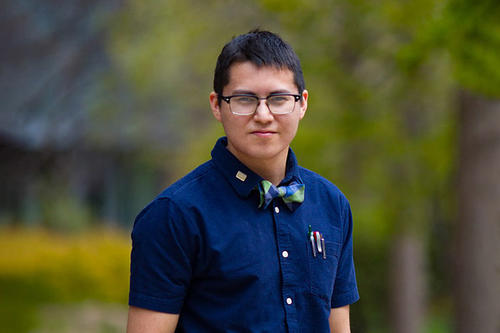
Growing up on the Navajo Nation in northeastern Arizona, Onri Benally used to watch missiles from the White Sands Missile Range streak through the sky, having flown all the way from southern New Mexico.
Today, Benally is building technology with the potential to improve space exploration. As a research associate in the lab of Jian-Ping Wang, a professor in the U of M College of Science and Engineering, he works in spintronics (short for “spin transport electronics”), a technology based on how electrons spin. It has a bright future in many fields, such as designing more efficient computer storage chips, devices that can withstand the bombardment of radiation in space, and tomorrow’s medical sensing and treatment technologies.
Besides his research position, Benally is studying for an interdisciplinary bachelor’s degree in physics, design, and communications through the U of M’s College of Continuing and Professional Studies.
“It’s very important to be able to relay all this complex information about quantum science and make it easier for people to understand,” he says. “It’s also required when you’re talking with professionals—they want you to be able to explain these things, from the complex level down to the very simple level.”
Benally sees himself continuing to work with nanotechnology and quantum-based hardware in the future, whether it’s in academic research or industry. He’s currently taking an IBM course in quantum computing. And he realizes the importance of support for students.
“Students in general have a lot of things going on, and sometimes we need help, not just academically, but mentally,” he says. “I really do appreciate the fact that the University offers mental health services.”
Read more about Benally on the CSE site.
- Categories:
- Science and Technology
- American Indian





